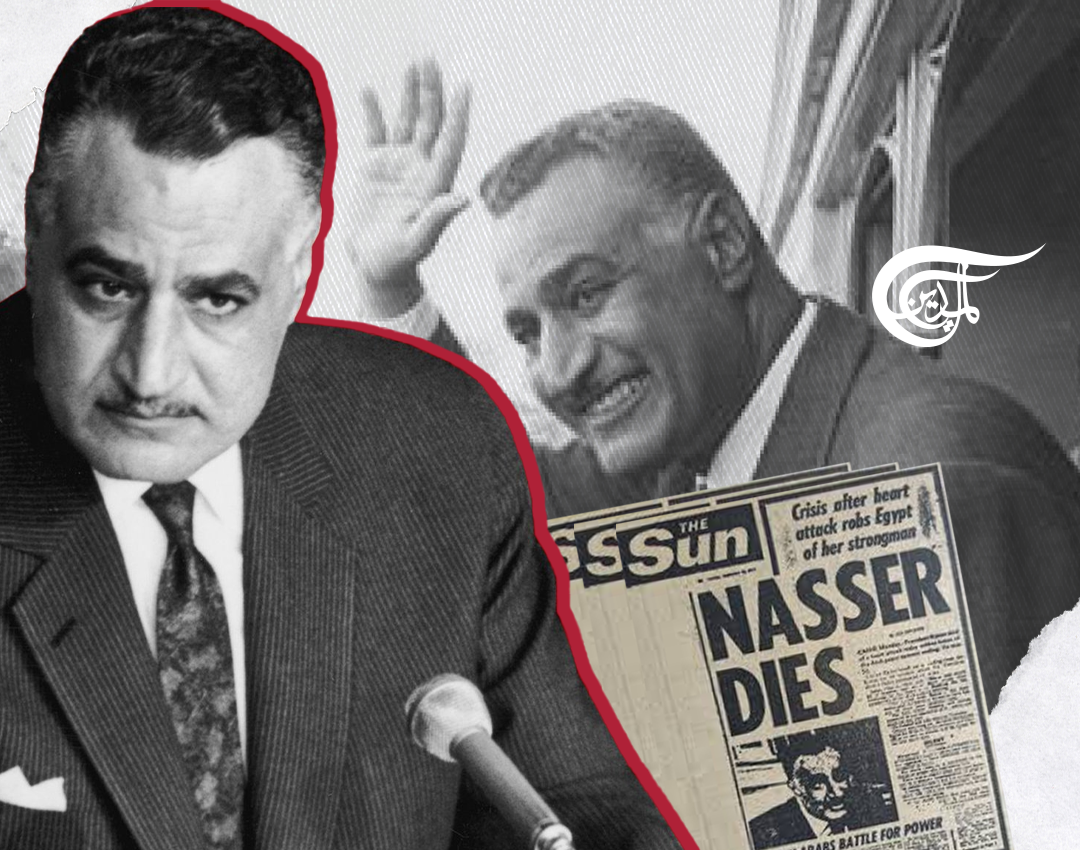A Page from Recent Arab History; The Last Day in Gamal Abdel Nasser’s Life
At the early age of 52, President Nasser passed away on 28 Sept 1970 after an extraordinary life that changed the face of not only his country, Egypt, but the whole Middle East region.
At the early age of 52, President Nasser passed away on 28 Sept 1970 after an extraordinary life that changed the face of not only his country, Egypt, but the whole Middle East region. Born in 1918, Nasser was so young when he masterminded and successfully orchestrated the 23rd of July 1952 revolution, led by the Free Officers Movement, which overthrew King Farouk’s regime and ended the rule of the Mohammad Ali dynasty that ruled Egypt for the past 150 years. Hereafter, Egypt witnessed profound changes culturally, socially, economically, and politically with Nasser attracting hostile attention from the old colonial power Great Britain and its proxy, "Israel", and successor, the USA. The impact of Nasser’s project and policies were far-reaching and vastly exceeded the borders of his country, and he quickly became an icon for the global revolution and anti-imperial national liberation movements in Africa, Asia, and Latin America. Nasser also gained a great deal of popularity and support among Arab peoples from Morocco and Algeria in the West to Iraq and Yemen in the East and South who looked at him as a true Arab leader in the way to freedom, unity, and sovereignty. Nasser, however, had his failures and defeats, naturally. But that doesn’t change the fact that the honest, modest, and the determined man spent 18 years in power, full of actions, events and struggles internally in Egypt and externally as well.
Nasser’s tremendous work rate (18 hours a day!) started taking its toll on his health as early as 1958 when he was diagnosed diabetic at the age of 40 years old. The deterioration of his health was visibly noticeable at the time of the defeat in 1967’s war with “Israel”. And by 1969 Nasser had a heart stroke but he survived. The doctors’ instructions were strict that he has to minimize his work rate and avoid stress and tensions. That was obviously impossible for a leader with great responsibilities like Nasser who continued his tireless efforts to overcome Egypt’s defeat in 1967 and restore its territorial loss and self-confidence. From the time of his first stroke in 1969 till his death one year later, Nasser traveled to Moscow twice, and to Libya, Morocco and Sudan. He moved extensively inside Egypt, visited the soldiers at the Sinai front repeatedly, headed the meetings of the military command and directed the “war of attrition” with "Israel", attended government’s meetings, delivered several public speeches, met with many visiting foreign leaders... very heavy workload that depleted his health even further.
On 17 September 1970 large-scale fighting erupted in Jordan between the Jordanian army and the Palestine Liberation Organization (PLO) fighters. That was a cause of great concern to President Nasser who was determined to save every drop of Arab blood and to direct all efforts to the ultimate battle with “Israel” which was inevitable. Nasser started immense efforts to stop the fighting in Jordan and he called for an Arab summit to handle the grave situation there. By September 22, the Arab summit convened in Cairo, and Nasser formed a delegation of Arab leaders, headed by Sudan’s president Jaafar Numairi, to travel to Jordan and meet the two fighting parties and negotiate a ceasefire. Nasser himself was engaged continuously in the difficult and tense negotiations in Amman, pushing very hard and putting his weight behind the Arab delegation until, finally, an agreement was reached on September 25 and the Numairi delegation returned to Cairo accompanied by PLO leader Yasser Arafat who came out of his hiding place in Amman and agreed to go with the delegation to attend the Arab summit in Egypt. King Hussein of Jordan also traveled to Cairo on 27 September where an official ceasefire agreement was signed between the two parties, with seven Arab leaders witnessing. Nasser was able, at last, to breathe a sigh of relief as he managed to stop the fighting between the Arab brothers and achieving a very difficult balance between maintaining the integrity of the Jordanian state and saving the Palestinian guerilla fighters (in the agreement: all Palestinian fighters, with their weapons, will pull out of Amman and the major cities to specific mountainous areas and near-border bases). It was a major success to Nasser that required a great deal of effort and extra work round the clock, from the ill leader who was supposed, according to doctors, to be having a rest by that time!
On his last day, September 28, 1970, Gamal Abdel Nasser, while pleased by the head title of Egypt’s main newspaper Al Ahram (AGREEMENT REACHED), was feeling gravely ill. However, he insisted on personally attending the ceremonial departure formalities of the Arab leaders who were returning home after the successful summit. The last one of them was the Emir of Kuwait who was the last foreign leader to see Nasser alive.
There are several accounts of the details of Nasser’s final day. Most known of these is what his close assistant and chief media consultant Mohammad Hasanain Haikal documented and published. When he was waving goodbye to the Emir whose plane was about to fly, Nasser felt great pain in his chest. He pointed to his guards so that the car comes to where he was standing since he was unable to walk. He headed directly to his home where his wife, Tahiyya, was waiting for him on lunch, along with his kids. He told her that he “cannot put anything in his mouth” and went immediately to his bedroom after telling his assistants to call his personal doctor El Sawi Habib. When the doctor arrived Nasser was lying on his bed wearing a blue-white pajama and almost breathless. Feeling the seriousness of the case the doctor called upon more medical staff and started emergency measures to activate the heart including electric shocks. Terrified by the scene of her husband and the doctors’ gloomy faces, crying Tahiyya called the state’s top men who hurried to the President’s house. According to Haikal, these were, in order: Marshal Mohamad Fawzi, Ali Sabri, Sha’arawi Guma’a, Sami Sharaf, and then Haikal himself. Then came Husein El Shafi’e and finally Anwar El Sadat.
The doctors declared Gamal Abdel Nasser dead, leaving everybody in the room stunned.
Nasser could not take vacations and long holidays to rest. But his heart decided at 6:15 pm on 28 September 1970 to take a long and eternal rest, leaving Egypt and the whole Arab world in an unprecedented state of shock and grief for the loss of the man who represented the Arab dream of unity, progress, and justice.

 Hussam AbdelKareem
Hussam AbdelKareem
 7 Min Read
7 Min Read















